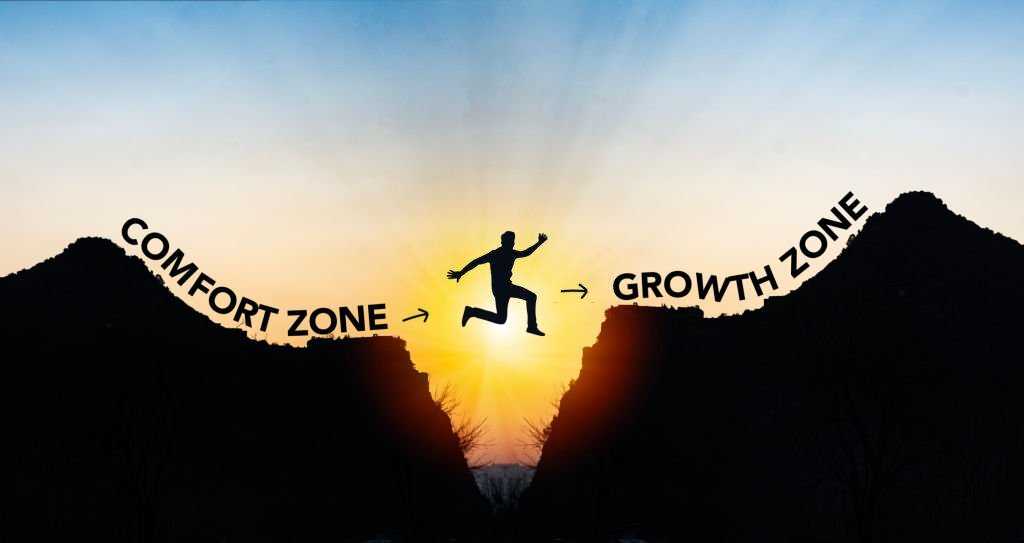
Picture this.
You’ve set a goal to start waking up at 6 AM every morning. Then you plan to start your day on a positive note by having a morning walk outdoors. But when your alarm goes off, you feel the strong urge to turn it off and stay in bed. The only way you can deal with this unhealthy temptation is by building discipline.
Similarly, you may aim to give your side hustle 2 hours of your time every evening. But after a busy work day, you instead want to enjoy video games or spend your time on your couch, binge-watching Netflix.
The solution to overcoming these temptations and staying on track lies in cultivating self-discipline. It can help you stay focused on your goal and follow your schedule regardless of your mood.
Discipline is the cornerstone of achieving financial goals as well as helps you adopt a balanced lifestyle. So, let’s discuss a bunch of actionable strategies designed to help you build self-discipline.
Table of Contents
ToggleBuilding Self-Discipline
Ready to find out how to build self-discipline? Then read on for useful and practical tips that will help you at almost every stage of your life.
1. Conduct Self-Assessment
When starting your journey toward a disciplined life, the key step is to conduct self-assessment.
Analyze different aspects of your life and note down which areas are to your liking and which ones need improvement. Also, reflect on areas in your life where a lack of discipline often leads to negative consequences for you.

For instance, you may be good at cooking, but you leave your kitchen dirty due to laziness. Or you may not be good at time management due to which you fail to spend time with your partner and end up hurting your relationship.
A thorough self-assessment can help you identify a lack of discipline in your life and how it’s affecting your lifestyle.
2. Develop Mindfulness
Mindfulness means being mentally present in the moment and being aware of what’s happening in your life and around you. When you’re mindful in your daily life, you can notice how much self-control you have.
You can understand triggers that affect your self-control and can come up with solutions to handle them in a better way. So, you will find it easier to reduce impulsivity and stick to a disciplined lifestyle.
Thus, it’s important to embrace mindfulness in your everyday life.

3. Create Goals Based on Your Weaknesses
After in-depth self-assessment, you can identify growth areas that need your attention. In other words, you must have noticed some weaknesses that you need to overcome.
For instance, you may have some bad habits that are affecting your health or making it difficult to achieve your financial goals. The best strategy is to turn this weakness into a goal.
Here are some examples of weaknesses and life goals you can create to address them:
- Weakness: Bad physical health and muscular pain
Goal: Engage in 30 minutes of exercise every other day. Start with yoga or a stroll and then level up to cardio and strength training. - Weakness: Not spending time with your loved ones
Goal: Set aside dedicated family time every day. It can be as short as 15 minutes on extremely busy workdays. During this time, talk to them, ask about their day, and have conversations that make their day. - Weakness: Excessive smartphone use before bedtime
Goal: Keep your phone away an hour before bedtime. Instead, engaging in relaxing activities such as reading a book, practicing meditation, and taking a warm bath before bed. - Weakness: Mindless snacking on potato chips and unhealthy items
Goal: Switch to fresh fruits, dry fruits, and other healthy snacks to improve nutrition intake and maintain a healthy weight. - Weakness: Lack of focus at work due to multitasking
Goal: Fully focus on a single task at a time. Don’t switch to another task until you’re done with the task at hand. This will boost efficiency and quality of your work.

4. Improve Your Habits
Aim to eliminate your bad habits and instead, develop good habits.
When building discipline, you may think of replacing more than one bad habit. But eliminating that habit often leaves a hole. So, unless you think of a good habit to replace it with, you may be tempted to go back to your old ways.
For example, during your lunch breaks, you may have the habit to visit online stores. Then you may impulsively buy items that capture your attention even though you don’t need them.
Now you need to identify a better activity that you can replace with frequent and unnecessary online shopping.
So, instead of browsing online stores, how about drinking a cup of coffee in silence and enjoying some me time? Or you can keep your phone away and talk to your work friends.
These actions will align with your goal of improving your habits and help build discipline.
5. Step Outside Your Comfort Zone
Growth comes when you build the courage to step outside your comfort zone. If you are too comfortable in your personal or professional life, this means you are losing the precious opportunity to grow.
So, push yourself forward and step outside this comfort zone.
Develop courage and motivation to take on unfamiliar tasks and create challenging life goals. Your goal can be learning a new skill in your field, attending more networking events, or taking the lead on new projects. Or you can grow as a person by embarking on a solo trip, initiating important conversations with your loved ones about topics you usually avoid, or mastering something you are afraid of such as rock climbing.

Stepping outside your comfort zone serves as a training ground for the development of self-discipline. As you repeatedly engage in this process, you strengthen the mental muscles necessary to lead a disciplined life.
6. Learn Time Management
Do you want to learn how to develop discipline? Then the key factor to remember is that effective time management is vital to maintain self-discipline.
Learn to prioritize tasks based on their importance. Then manage your time effectively to finish your tasks well in time and avoid the stress and anxiety caused by procrastination. You can experiment with techniques like the Pomodoro Technique to balance work and breaks. It can help stay disciplined, optimize productivity, and prevent burnout.
Another effective strategy is Time Blocking which helps build focus by avoiding multitasking. Or you can try out to-do lists and time-tracking apps to make the most of your time and ensure you don’t forget or delay urgent matters.

7. Set Metrics
Without any pre-defined, clear metrics, how would you track your performance and determine whether or not you are succeeding at building discipline?
So, create measurable goals and define beforehand how you will measure progress. It’s best to dissect your goal and work backward to see which actions you would need to reach your goal.
Also, accountability is a powerful driver of discipline. It enhances your commitment and assists with staying focused on your goals even if you don’t feel like it.
Thus, find an accountability partner, someone who shares your ambition. Both of you can regularly share progress and setbacks, offer encouragement, hold each other accountable, and help each other build discipline.
8. Give Up on All or Nothing Mindset
Perfection is unattainable. On your journey to building self-discipline, a few setbacks are inevitable.
You may have a good routine and follow it every day. But no matter how motivated you are, there will be a few days when you won’t be able to stick to your routine. For instance, you may not be feeling well or would be too busy due to work commitments.
But failure to work on your goal once or twice doesn’t mean you failed to build a disciplined life. And it won’t undo all your progress.
What’s important is to give up on this all-or-nothing mentality and forgive yourself for such minor mistakes. Just don’t make it a habit. Learn from your slip-ups and try to stay positive, focusing on consistency over occasional mishaps.

9. Take Care of Yourself
You can’t focus on anything or cultivate discipline if you aren’t physically or mentally fit. It’s never a good idea to try introducing discipline in your life by hurting yourself. First, you need to prioritize your health.
Going to bed early and getting sufficient sleep provide the foundation for sustained discipline. Take nutritious meals every day and take additional supplements at the advice of your physician if you’re suffering from nutritional deficiency. Engage in physical activity and exercise too.
Further, address stressors promptly, seek help when needed, and foster a positive mindset to stay on course.

Conclusion
Building self-discipline is a journey, not an overnight transformation. Setbacks are part of the process. So, don’t get disheartened if you fail in the beginning.
From mindful self-assessment to practicing self-care, implement the strategies to introduce discipline in your daily life and achieve your goals. Be resilient and watch as your efforts gradually start producing the desired results.
So, how did you like the strategies discussed? Join the conversation and share your thoughts.
